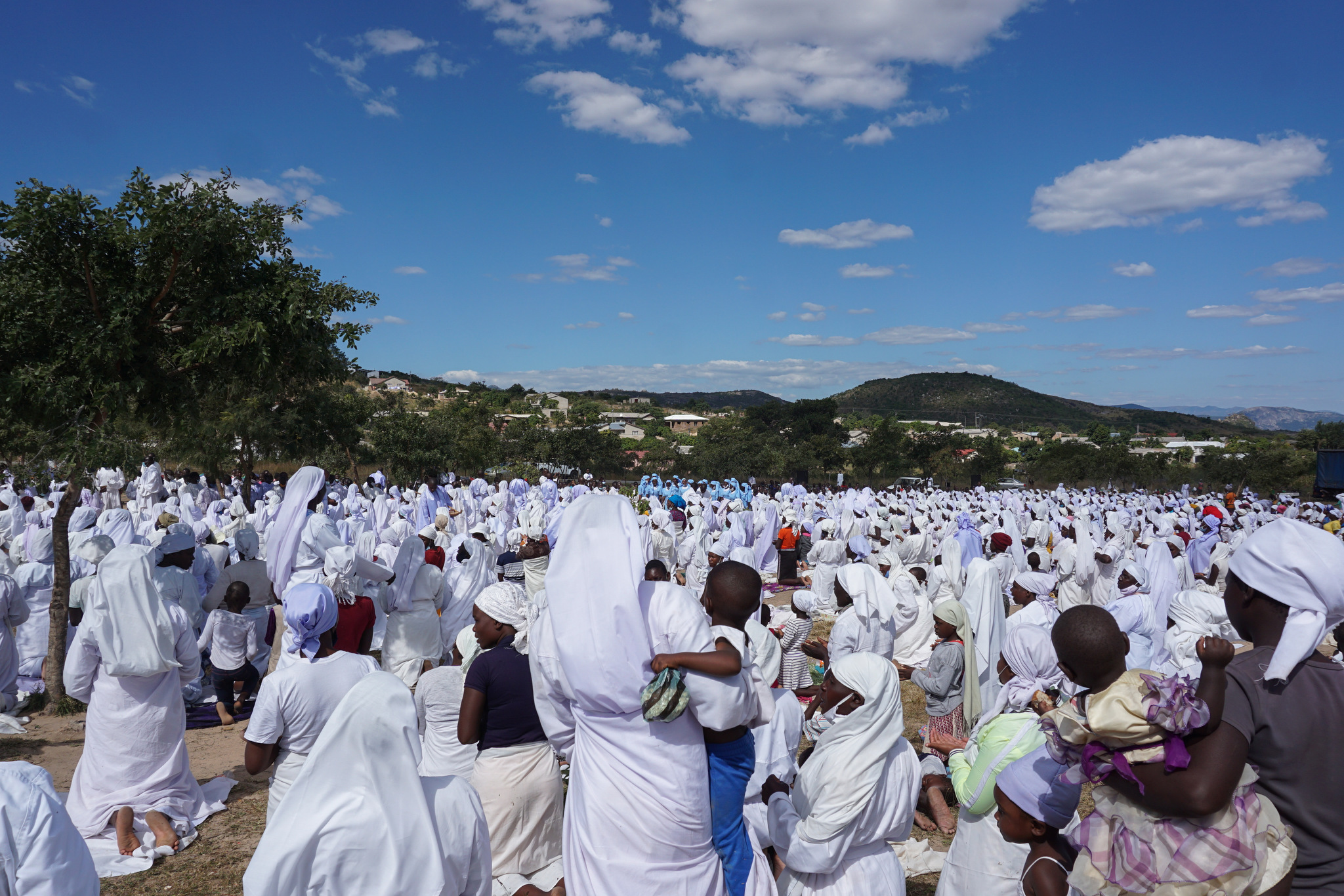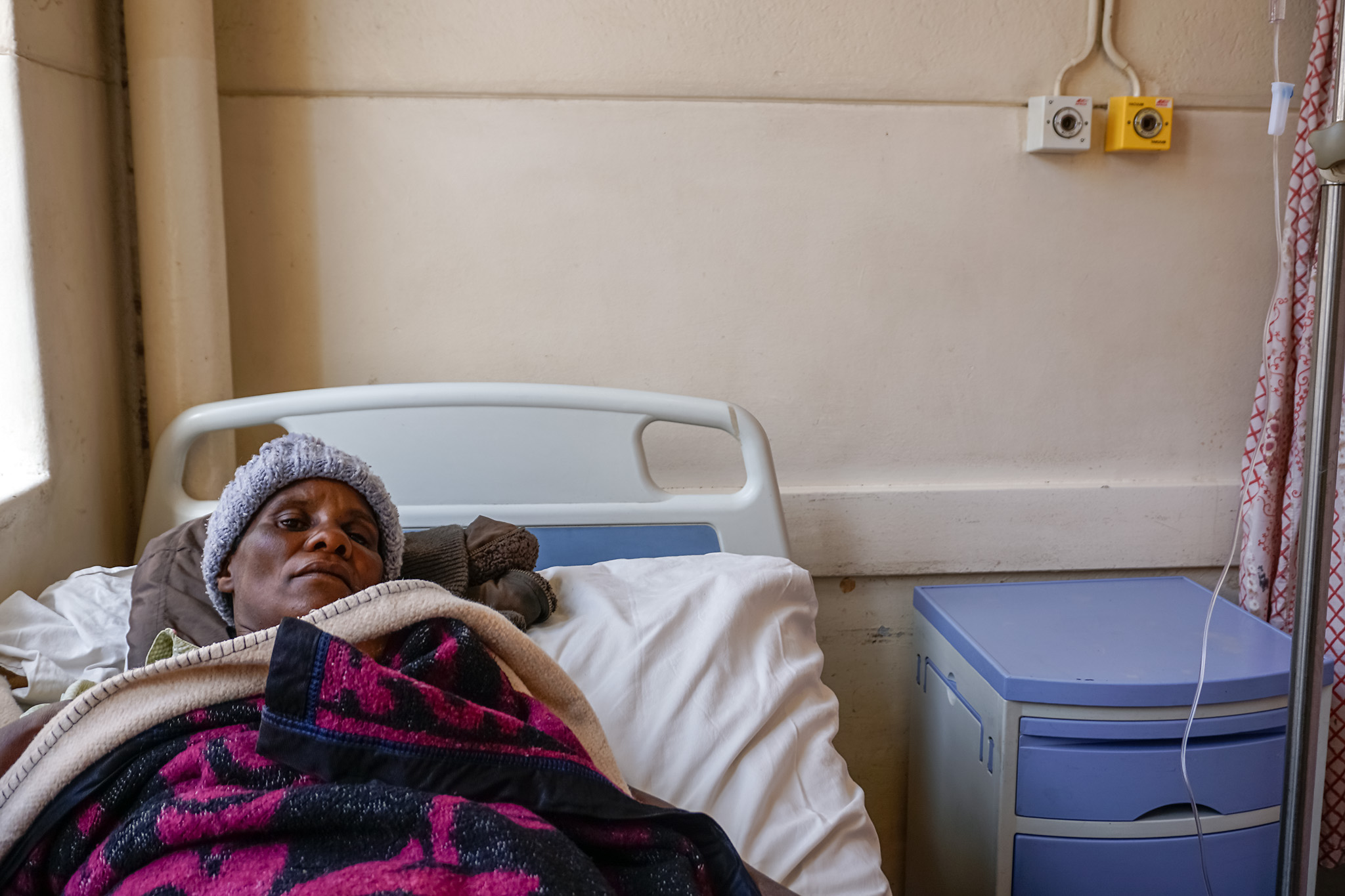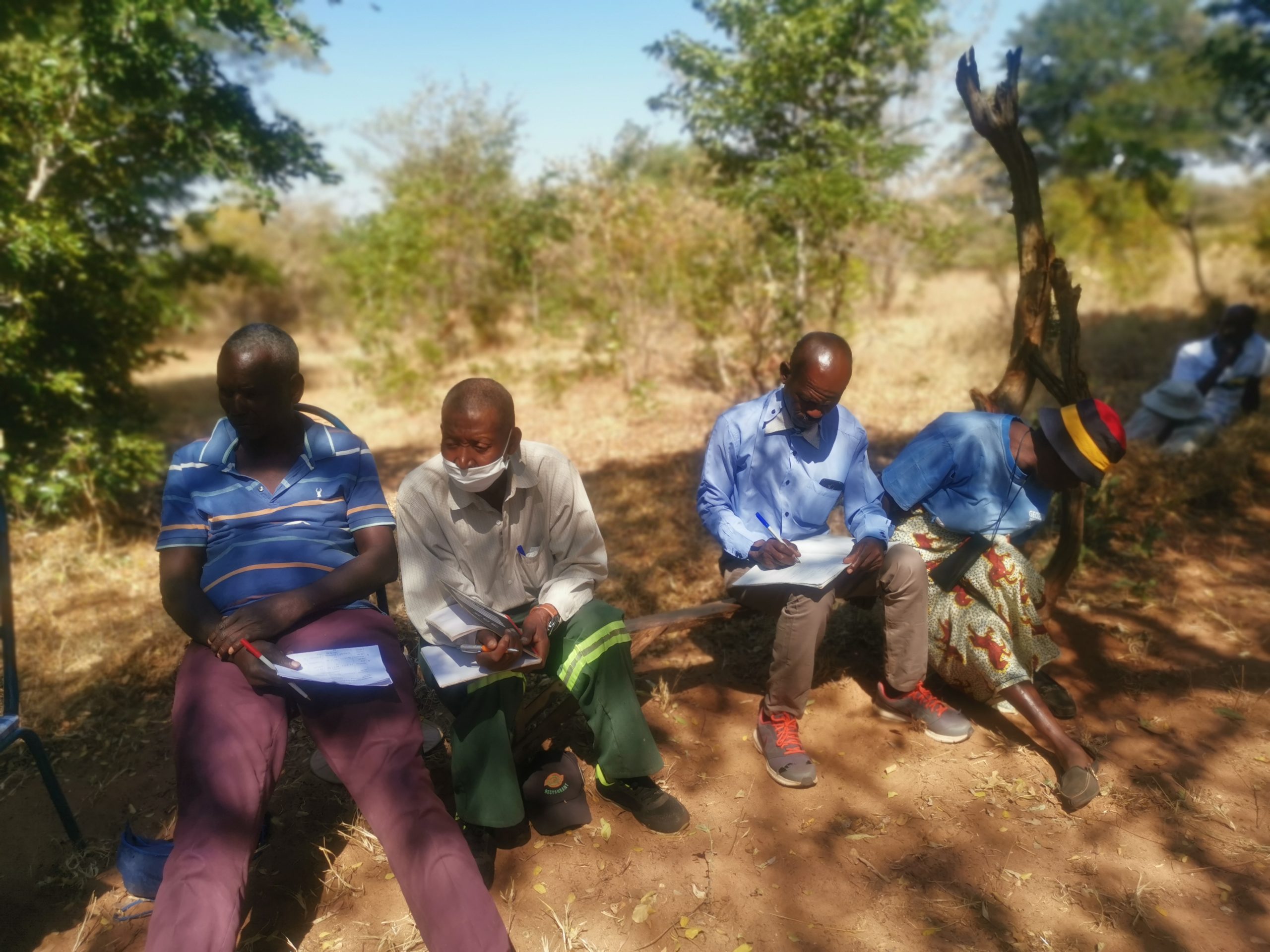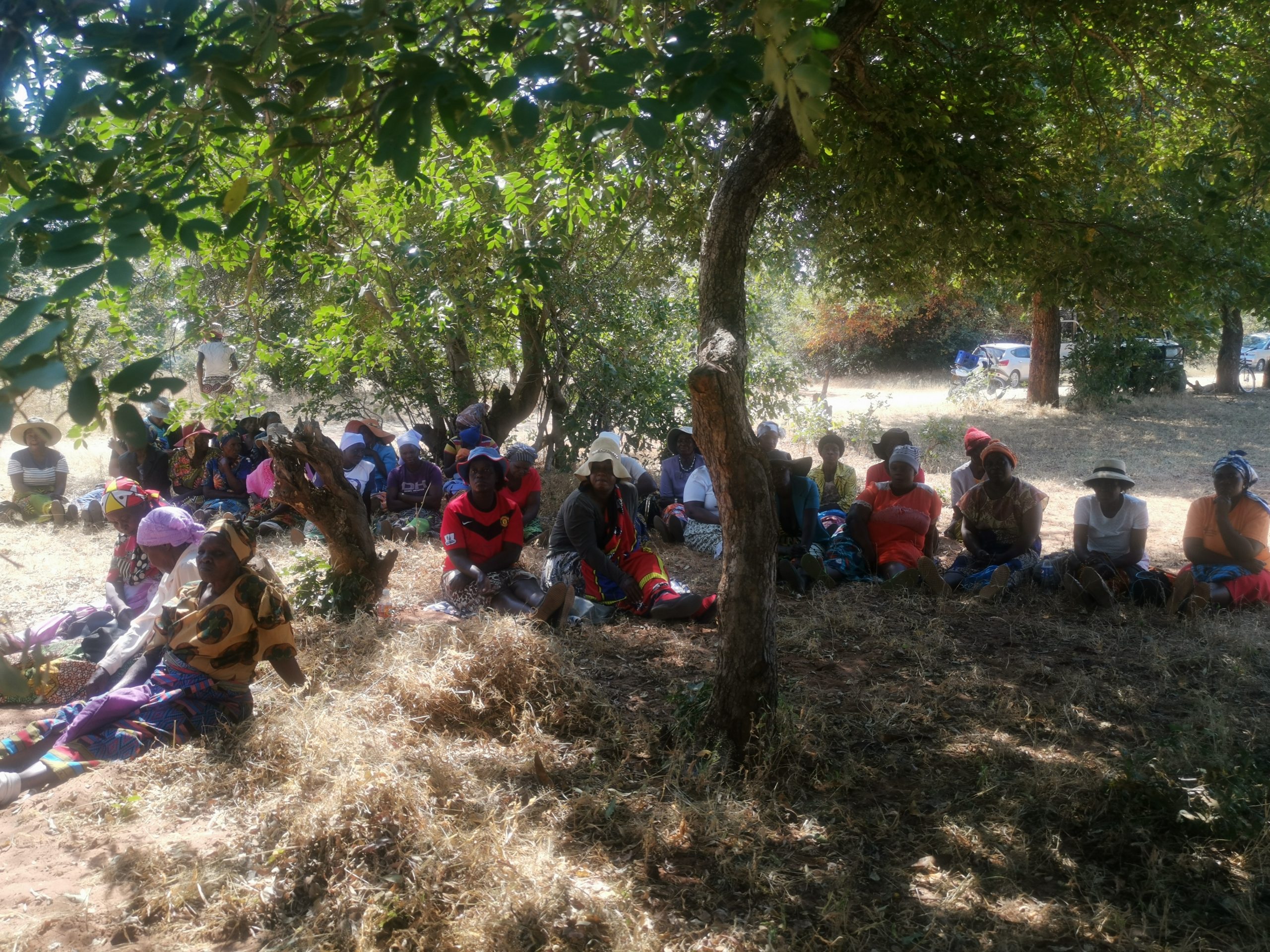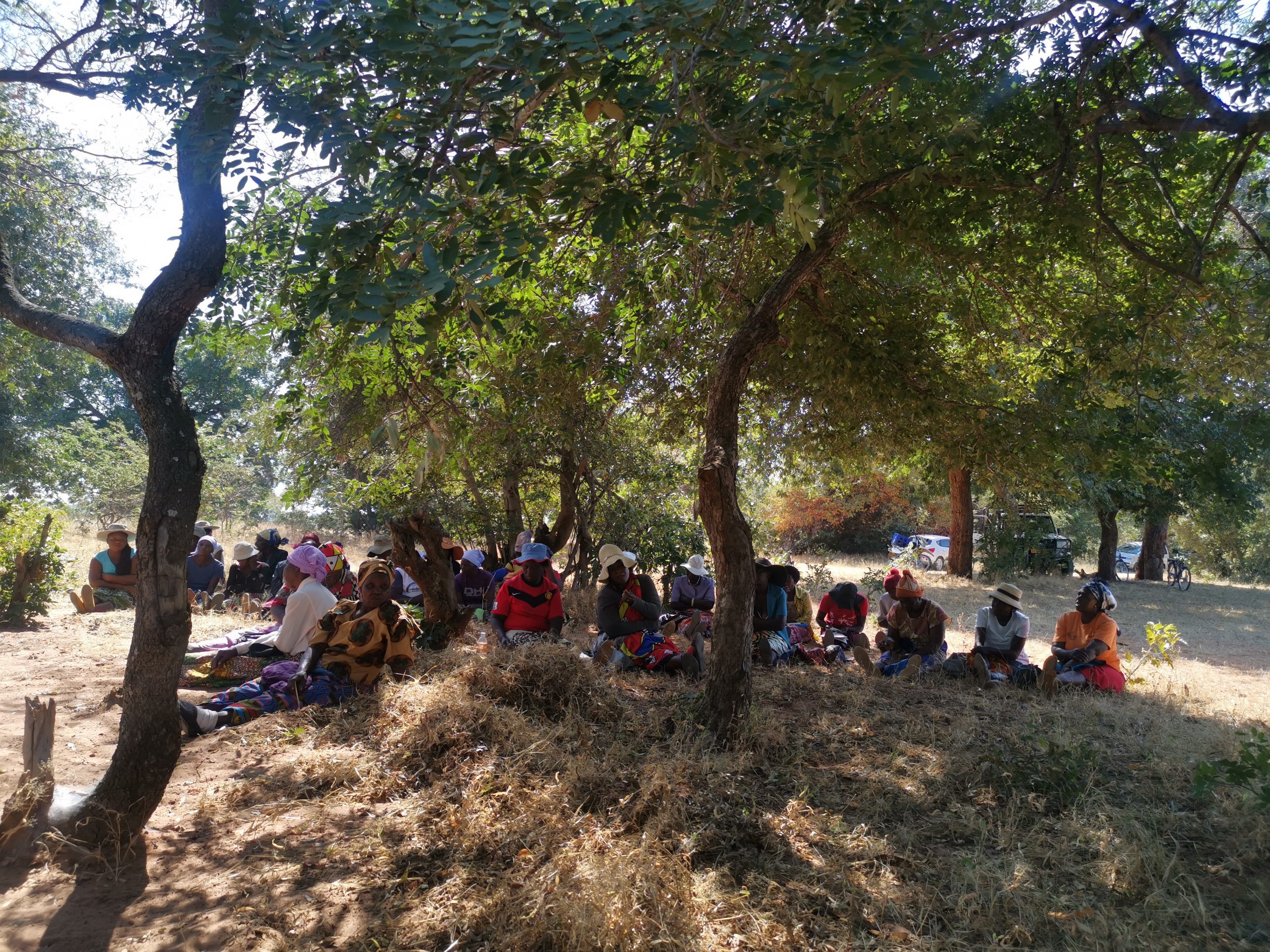BY LINDA MUJURU
The road to justice in Zimbabwe has two lanes.
The magistrate court system serves as the official channel for criminal and civil cases — but that route costs money and takes years to navigate. As the United Nations Development Programme put it in a 2020 report, barriers include “complex court procedures that are not easily understood by most; the high costs of litigation; the limited availability of legal aid service providers; and the physical inaccessibility of formal courts located largely in urban areas.”
The traditional court system, in contrast, provides a free and more direct path — outdoor proceedings conducted within walking distance, in each community’s local language.
These proceedings lack the authority and resources to handle imprisonments, extraditions, or scientific analysis of evidence, but they have the government’s blessing to settle non-violent disputes ranging from infidelity to cattle theft.
“They allow us to get our possessions back and people solve their issues amicably,” says Elizabeth Mukuta, a village head from the Mutoko district, located 180 kilometres east of Harare.
“Traditional courts allow people to be compensated for their losses and get paid in form of money or livestock.”
Zimbabwe’s government has made efforts to expand legal aid services in recent years, but the magistrate court system has remained inaccessible for rural communities, home to two-thirds of the country’s population.
The traditional court system gives citizens the best chance of being served — while “reducing the clogging” in magistrate courts, which has mounted during the pandemic, says Elizabeth Mawondo, acting head of policy and legal service for the Judicial Service Commission, the government body responsible for the administration of justice.
Traditional courts also save money, given their use of volunteer leaders and outdoor facilities.
Once or twice a month, Mutoko’s traditional court convenes at a rocky spot under trees, offering both shade and seating.
Men stand and women ululate as a sign of respect as Headman Nyamukapa takes his seat on a wooden chair, flanked by two dozen village heads and a secretary taking notes, and signals for the proceedings to begin.
Nyamukapa, whose legal name is Edward Muzengeza, is a hereditary leader ordained by the president to oversee local matters in his district.
For each case, he listens carefully and consults with the village heads before announcing his decision, usually within an hour; the highest penalty has been the payment of a cow to the injured party.
“There are issues that are unusual and that anger the spirits — for instance, if a brother and sister have sexual relations — such things anger the spirits, and a fine in form of a cow is supposed to be paid to appease the spirits,” Nyamukapa says.
“Our issues are open and we make the decision collectively.”
Not every case can be resolved so easily.
In one recent case, Maidei Gurupira complained that her husband moved to South Africa with their two children five years ago.
He has remarried, and she hasn’t seen their children — now ages 16 and 10 — since then.
Since she and her husband were married under Shona customary law, Gurupira petitioned the traditional court for him to divorce her in the customary way: by sending a token, usually in the form of a coin, to the ex-wife’s family.
She also hoped the headman would order her ex-husband’s family to summon him back to Zimbabwe and allow her to see their children again.
But Nyamukapa ruled that the case couldn’t proceed without her husband’s voluntary presence.
If the case had been before a magistrate court, the judge could have issued a summons requiring a response within 14 days, issued a judgment in absentia or involved Interpol, an international police organization.
Traditional courts also fall below magistrate justice standards on cases involving crimes against women, says Romeo Chingezi, head of programs for Disaster and Environmental Management Trust, a community-based organization in Mutoko that has studied gender-based violence.
Women may find it easier to seek help locally due to the cost and proximity, he says, but headmen need training to recognize and respond appropriately to gender-based violence.
“They need to be capacitated or have proper orientation on women’s rights and gender justice,” he says.
Chingezi says headmen should stick to disputes over inheritance, land distribution and “general quarrels at household level.”
At least the traditional courts are free, says Gurupira, who is still fighting for custody of her children.
When she sought help from the magistrate courts in 2018, she says she paid a lawyer US$100 followed by additional expenses as the process continued over the course of a year.
The court ruled that her former husband couldn’t evict her from their home, but stopped short of demanding their children’s return.
The two court systems should continue to complement each other, Nyamukapa, the headman, says.
“Some issues we leave for the magistrate courts, especially criminal cases, maintenance issues and all issues involving jail time,” he says.
“We have our limitations as traditional courts.” – Global Press Journal
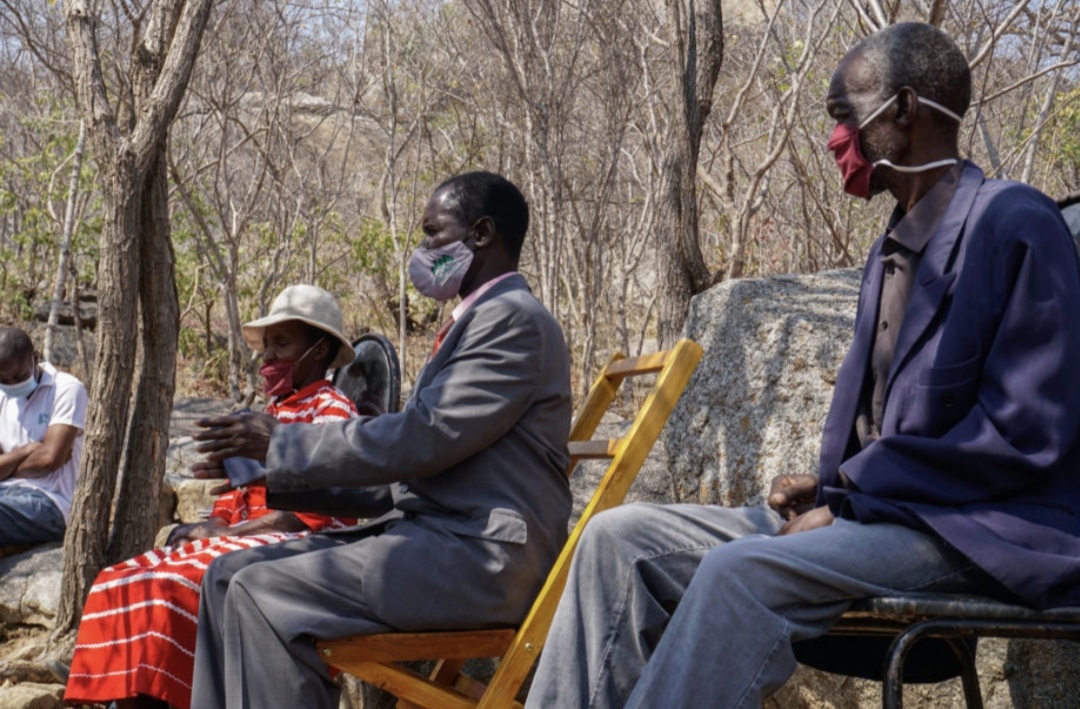

 Slider1 year ago
Slider1 year ago
 News1 year ago
News1 year ago
 Tourism and Environment2 years ago
Tourism and Environment2 years ago
 News3 years ago
News3 years ago
 News2 years ago
News2 years ago
 News2 years ago
News2 years ago
 News1 year ago
News1 year ago
 News2 years ago
News2 years ago
